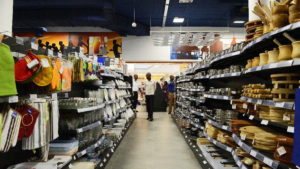
While many multinationals (MNCs) may be growing their revenue share in Africa—off the back of a growing middle class and a demand for a variety of consumer goods—a new report from the global consultancy firm, Boston Consulting Group (BCG), argues that multinationals are gradually losing market share and being outclassed by local African companies.
“It’s true—European and North American companies in a variety of industries are earning a higher percentage of their global revenue on the continent than they ever have. But the numbers are still small. And by another, perhaps more telling, measure—African market share—many of those companies are going backward,” says the report.
BCG looked at four product segments—bottled water, fruit juice, cement and cosmetics—in five countries, and compared the performance of multinationals against that of local African companies, in revenue growth and market share terms between 2009 and 2013.
A survey respondent (pdf, pg. 4) in the BCG report says that the loss in market share is linked to the fact that many multinationals are “spreading themselves too thin”—their focus is not just on Africa, but other world regions too. This creates a space for African companies to hone in on local markets and grow their share.
According to BCG, another advantage which some African companies have over multinationals, is their willingness to move up the “value chain” by investing in local manufacturing capability, amongst other things, given that Africa is a primary market for most African companies.
An example is Dangote Cement, Africa’s largest cement company based in Lagos. In 2002, Nigeria introduced its “backward linkages policy” (BIP) (pdf), which aimed to stimulate local production across various sectors—including the cement industry—by compelling importers and companies to build building local cement factories in .
Dangote Cement was able to grab market share from “an experience multinational”, according to BCG, by simply building more cement plants—adding 18.5 million tons in cement production a year—compared to the multinational that could only add 5 million tons of cement production annually.
African companies also have the ability to develop products that are specifically suited for the income levels and tastes of the African market.
“MNCs often can’t justify the cost of developing new products for African markets and so may try to compete with offerings made for Westerners. What’s more, MNCs frequently reallocate their investment capital, weighing one geographic region against another,” says BCG in the report.
Read the full story at qz.com


